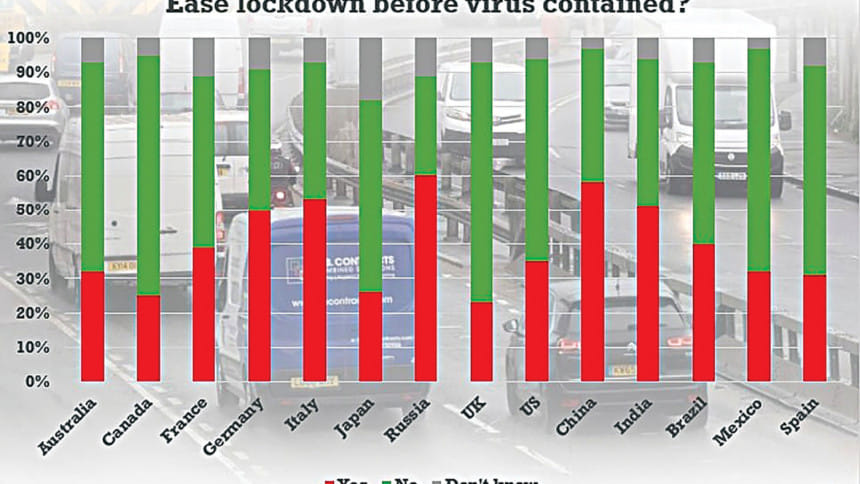Opening factories would do more harm than good

The recent events in the garment sector regarding the workers' unpaid wages, layoffs, retrenchment and opening of factories without proper safety measures portray that the May Day does not bear any more significance than a normal day.
I think there is no strong reason for opening garment factories at a time of high incidence of coronavirus infection in the country. In case of emergency, factories should negotiate with their buyers about revised schedules for shipment of orders.
Since most of the shops and businesses are closed in major apparel importing countries, factory owners could easily pursue a rescheduled timeline.
Opening the factories with a high risk of infection in the workplace would make the factories more vulnerable and thus reduce the scope for getting orders in future.
Such a hurried move for short-term benefits may push the factories as well as the sector in long-term risks of occupational safety and health.
We have noticed that the decision on opening the factories is not giving priority to the directives of the health ministry.
Since social distancing is being promoted everywhere, how could factories be opened when maintaining social distancing is almost impossible in case of movement to and from the factories?
Since the country is going through a period of health emergency, the directives of the health ministry should have taken precedence over other ministries.
In a few cases, we have noticed the participation of trade union representatives in the discussion, but the role and influence of workers in such a decision-making process were found to be minimal.
Garment manufacturers often say that if they do not reopen their factories now, they would lose competitiveness in the international market, but we do not think so.
The whole world is closed: a few countries have opened their factories (such as Vietnam) because they were able to contain the spread of the virus successfully.
This logic does not apply to Bangladesh as it seems we have a long way to go in this battle.
Given the limited awareness and understanding about personal safety as well as the limited institutional capacity for the factories to ensure health safety at the workplace, the decision to open factories needs to be taken cautiously.
If we hurry to go back to production and thereby coronavirus spreads across the worker community and other regions, the benefit of the month-long holidays will go in vain.
The health-related concerns should get priority over other economic emergencies.
We think that the government measures for the industries, particularly for the export-oriented sectors, should adequately address their economic concerns.
We know that the government is working closely with the International Labour Organisation in preparing emergency safety guidelines.
However, some follow-up steps are associated with the formation of committees at the factory level, awareness-raising and identification of vulnerable areas in the factories.
All the stakeholders, particularly the government and workers, trade unions, local and international organisations, should work closely on social dialogue to ensure workers' rights at this crucial moment.
We have a plan to monitor the safety situation if we could collaborate with international organisations.
We think that the challenges in the world of work -- particularly business, employment, working conditions, workers' rights and the role of brands and buyers -- will persist for more than a year, which would have different impact and implications for the overall working conditions in the country.
The writer is the research director of the Centre for Policy Dialogue

 For all latest news, follow The Daily Star's Google News channel.
For all latest news, follow The Daily Star's Google News channel. 



Comments